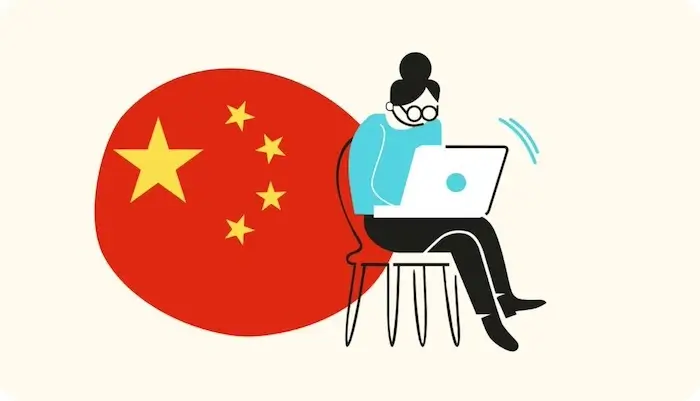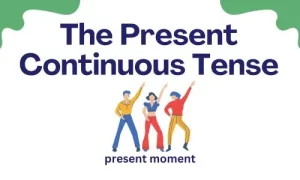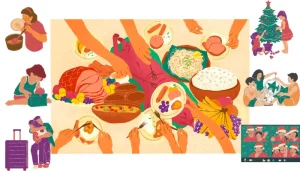Mandarin Chinese is one of the world’s most widely spoken languages, known for its intricate characters and tonal nature. Learning Mandarin can be a daunting task for many, but mastering a few common phrases is a great way to start. Today we will explore the 50 most common Mandarin phrases.
Greetings and Introductions
- 你好 (Nǐ hǎo) – “Hello”: This is the most basic greeting in Mandarin, and it’s used in all sorts of situations, from meeting someone for the first time to answering the phone. It literally means “you good.”
- 谢谢 (Xièxiè) – “Thank you”: Show gratitude by using this phrase. It’s always appreciated when you say “xièxiè.”
- 不客气 (Bù kèqì) – “You’re welcome”: This is the standard response to “xièxiè.” It means “don’t be polite.”
- 请问 (Qǐngwèn) – “Excuse me” or “May I ask…”: Use this when you need to get someone’s attention or ask for information politely.
- 我叫… (Wǒ jiào…) – “My name is…”: This is how you introduce yourself. “Wǒ jiào” means “I’m called.”
- 很高兴认识你 (Hěn gāoxìng rènshi nǐ) – “Nice to meet you”: A friendly way to express your pleasure in meeting someone.
- 再见 (Zàijiàn) – “Goodbye”: Use this phrase when parting ways. It means “see you again.”
- 早上好 (Zǎoshang hǎo) – “Good morning”: Greet someone in the morning with this phrase.
- 晚上好 (Wǎnshang hǎo) – “Good evening”: Appropriate for evening greetings.
- 你好吗? (Nǐ hǎo ma?) – “How are you?”: A common way to ask about someone’s well-being.
The 50 Most Common English Phrases
Politeness and Basic Phrases
- 对不起 (Duìbuqǐ) – “I’m sorry”: Use this to apologize or express regret.
- 请 (Qǐng) – “Please”: A polite word to request something.
- 没关系 (Méi guānxi) – “It’s okay” or “No problem”: A response to someone’s apology.
- 再见 (Zàijiàn) – “Goodbye”: A common parting phrase, meaning “see you again.”
- 请稍等 (Qǐng shāo děng) – “Please wait a moment”: Useful when asking someone to hold on.
- 不好意思 (Bù hǎo yìsi) – “Excuse me” or “Sorry”: A polite way to get someone’s attention.
- 我不知道 (Wǒ bù zhīdào) – “I don’t know”: Admitting a lack of knowledge.
- 好的 (Hǎo de) – “Okay” or “Alright”: Use this to agree or confirm something.
- 可以 (Kěyǐ) – “Can” or “May”: A versatile word used for asking permission or confirming capability.
- 对的 (Duì de) – “Correct” or “Right”: Express agreement or correctness.
Basic Questions and Answers
- 什么 (Shénme) – “What”: Use it to ask questions about things or actions. For example, “你想吃什么? (Nǐ xiǎng chī shénme?)” means “What do you want to eat?”
- 谁 (Shéi) – “Who”: Employ this word when asking about a person’s identity. For instance, “你是谁? (Nǐ shì shéi?)” means “Who are you?”
- 哪里 (Nǎlǐ) – “Where”: Use it to inquire about a location or place. “你住在哪里? (Nǐ zhù zài nǎlǐ?)” means “Where do you live?”
- 为什么 (Wèishénme) – “Why”: Employ this phrase when seeking reasons or explanations. For example, “你为什么生气? (Nǐ wèishénme shēngqì?)” means “Why are you angry?”
- 多少 (Duōshǎo) – “How much” or “How many”: Use it to ask about quantity. “这个多少钱? (Zhège duōshǎo qián?)” means “How much does this cost?”
Expressing Emotions and Desires
- 我爱你 (Wǒ ài nǐ) – “I love you”: Express your affection with this phrase.
- 我不喜欢 (Wǒ bù xǐhuān) – “I don’t like”: Use this to express dislike for something.
- 我喜欢 (Wǒ xǐhuān) – “I like”: Expressing a preference.
- 我想 (Wǒ xiǎng) – “I want”: Use this to express desire. “我想吃面条 (Wǒ xiǎng chī miàntiáo)” means “I want to eat noodles.”
- 我需要 (Wǒ xūyào) – “I need”: Expressing necessity. “我需要帮助 (Wǒ xūyào bāngzhù)” means “I need help.”
Basic Descriptions and Conditions
- 这是什么? (Zhè shì shénme?) – “What is this?”: Use this phrase to ask about an object’s identity.
- 我知道 (Wǒ zhīdào) – “I know”: Expressing knowledge or understanding.
- 我不明白 (Wǒ bù míngbai) – “I don’t understand”: Admitting confusion.
- 我累了 (Wǒ lèi le) – “I’m tired”: Expressing fatigue.
- 我饿了 (Wǒ è le) – “I’m hungry”: Indicating hunger.
- 我渴了 (Wǒ kě le) – “I’m thirsty”: Expressing thirst.
- 我无聊 (Wǒ wúliáo) – “I’m bored”: Indicating lack of interest or boredom.
- 我高兴 (Wǒ gāoxìng) – “I’m happy”: Expressing happiness or joy.
Time and Numbers
- 现在几点? (Xiànzài jǐ diǎn?) – “What time is it now?”: Useful for asking about the current time.
- 今天 (Jīntiān) – “Today”: Employ this to refer to the present day.
- 明天 (Míngtiān) – “Tomorrow”: Referring to the day after today.
- 昨天 (Zuótiān) – “Yesterday”: Referring to the day before today.
- 星期几? (Xīngqī jǐ?) – “What day of the week?”: Used to ask about the day of the week.
- 现在 (Xiànzài) – Now: Referring to the present moment. “我们现在可以开始” (Wǒmen xiànzài kěyǐ kāishǐ) – We can start now.
- 什么时候 (Shénme shíhòu) – When: Inquiring about a specific time. “你什么时候可以来?” (Nǐ shénme shíhòu kěyǐ lái?) – When can you come?
- 一 (Yī) – “One”: This is the number “one” in Mandarin.
- 二 (Èr) – “Two”: The number “two.”
- 三 (Sān) – “Three”: The number “three.”
- 五 (Wǔ) – “Five”: The number “five.”
- 六 (Liù) – “Six”: The number “six.”
- 十 (Shí) – “Ten”: The number “ten.”
Please note: Mandarin Chinese is a tonal language, which means that the pronunciation of a word can change its meaning based on the tone. We’ll provide the Romanized Pinyin for each phrase and mention the tone for reference.
These 50 common Mandarin phrases are essential for anyone looking to start their journey into the world of the Chinese language. Happy learning!
image source:https://preply.com/






